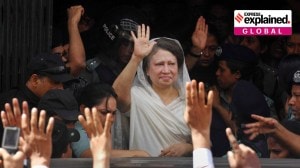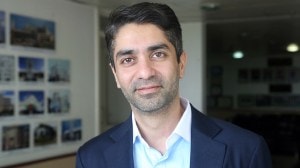Greed is illegal
Against Wall Street,even FBI needs publicity. Thats where Michael Douglas,aka Gekko,comes in
Against Wall Street,even FBI needs publicity. Thats where Michael Douglas,aka Gekko,comes in
Gordon Gekko never said Greed is good. That legend is a popular reduction of what Gekko actually did say: Greed,for lack of a better word,is good. In Wall Street 1987,Gekko went on to explicate greed or his idea of it,leaving no doubt about its goodness. However,out of context,that utterance might intimate a scope for ambiguity whereby real-life Wall Streeters would walk up to Michael Douglas as he walked the streets of Manhattan,shake his hand and tell him how much they loved Gekko.
If Douglas is now the ambassador for brand FBI on TV,declaring that illicit trading is illegal,is the bureau pouncing on the possibility that those Wall Streeters read the message wrong? Or,if some of them read it right,are they self-loathing traders pondering spilling the beans on their Gekkos? It would help the FBIs securities investigations if more would-be-informants came forward with the illegal things they witness. After all,it was only after the 2008 global meltdown,that insider trading moved up the bureaus crime hierarchy close to the top and a reformed Gekko returned with the sequel,Wall Street: Money Never Sleeps 2010,as an anti-hero.
With Wall Street,even the FBI could do with a little publicity. Last years Raj Rajaratnam trial which saw the fall of Rajat Gupta was a paradigm shift for the war on insider trading. But the bureau worked in obscurity,while Preet Bharara,US attorney for the Southern District of New York,earned a lot of deserving fame,landing recently on the Time cover titled: This Man is Busting Wall Street. Now the FBI wants its work recognised and greed bravely reported. Gekkos was a pretence of enlightened self-interest. If Douglas made him a legend,Wall Streeters may now believe all greed is bad.
- 01
- 02
- 03
- 04
- 05































